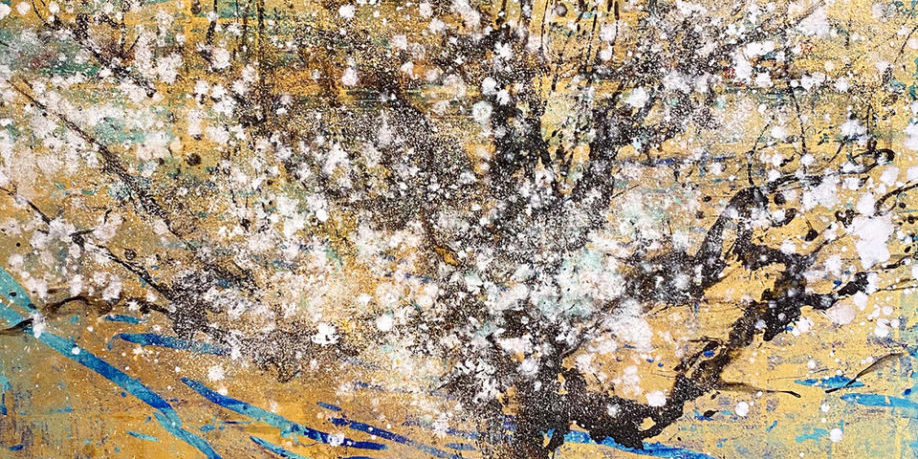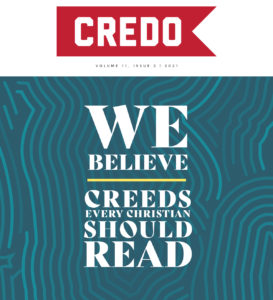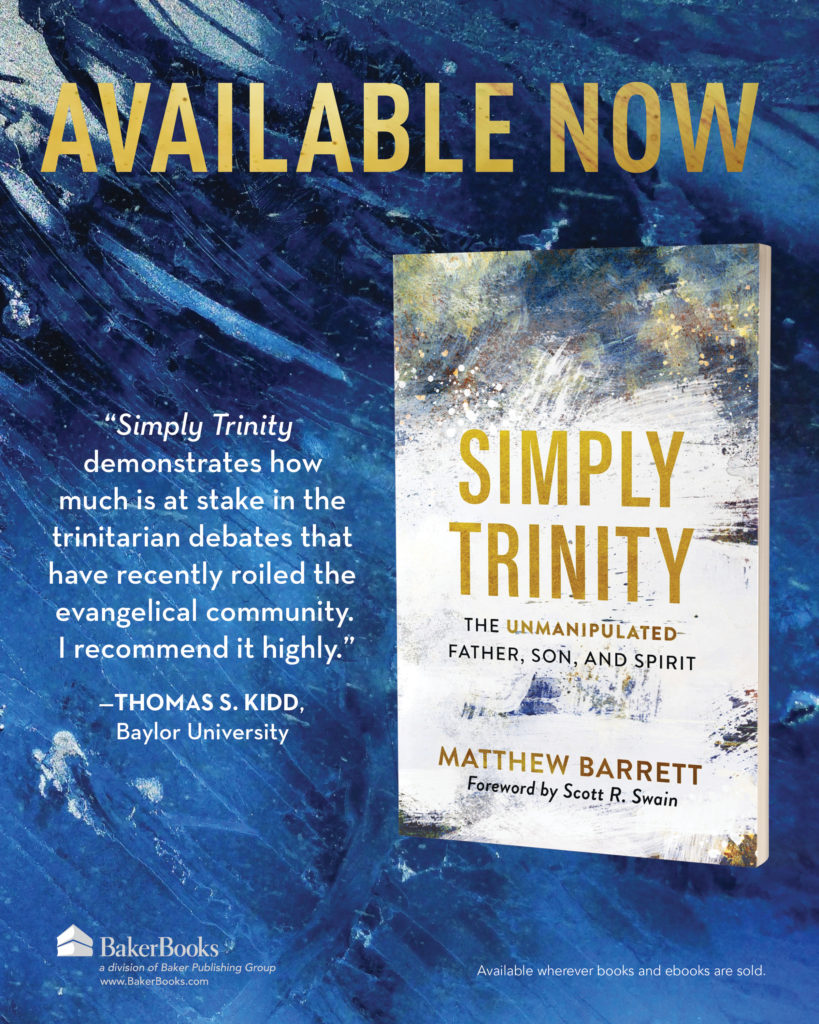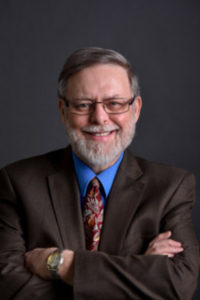
The Nicene Doctrine of the Trinity and Banquo’s Ghost: The Madness of Social Trinitarianism
T he new issue of Credo Magazine focuses on the creeds of the Christian Faith. The following is an excerpt from one of the issue’s featured articles by Craig A. Carter. Dr. Carter serves as Research Professor of Theology at Tyndale University in Toronto and as Theologian in Residence at Westney Heights Baptist Church.
he new issue of Credo Magazine focuses on the creeds of the Christian Faith. The following is an excerpt from one of the issue’s featured articles by Craig A. Carter. Dr. Carter serves as Research Professor of Theology at Tyndale University in Toronto and as Theologian in Residence at Westney Heights Baptist Church.
In the Introduction to his book, Nicaea and Its Legacy: An Approach to Fourth-Century Trinitarian Theology (Oxford, 2004), Lewis Ayres makes it clear that he sees twentieth-century theology as teaching a form of Trinitarianism that is far removed from what the pro-Nicene theologians of the fourth century themselves actually believed and meant to express in the Niceno-Constantinopolitan Creed of 381. As Stephen Holmes would later put it, the twentieth century is more of a revision than a revival of the doctrine after it was eclipsed in the Enlightenment. (The Quest for the Trinity, IVP, 2012, chap. 1)
Of Shakespeare and Nicaea
Ayres thinks the fourth-century doctrine is of permanent value even though its influence is currently at a low ebb. He writes:
In many ways the argument of my last chapter is not that modern Trinitarianism has engaged with pro-Nicene theology badly, but that it has barely engaged with it at all. As a result the legacy of Nicaea remains paradoxically the unnoticed ghost at the modern Trinitarian feast. (p. 7)
I take this reference to the “unnoticed ghost” as referring to Banquo’s ghost at the feast hosted by Macbeth in Act 3, Scene 4 of Shakespeare’s play Macbeth. Macbeth has just murdered King Duncan, cast the blame on his sons and been crowned king himself. He did so because he succumbed to the temptation to seize the crown that welled up in him after his encounter with three witches in Act 1, Scene 3. They told him that he would be named Thane of Cawdor and that he would be king thereafter. They also prophesied, however, that Macbeth’s companion Banquo would be both “lesser than Macbeth, yet much happier” and that he would “get kings, though thou be none.” The prophecy is that Macbeth shall be king, yet Banquo’s descendants will be kings. So, perceiving Banquo and his son Fleance to be threats to his dynasty, Macbeth hires assassins to murder both of them. Banquo is killed but Fleance escapes. Macbeth receives this news just prior to his first banquet hosting the nobility of Scotland as king. His state of mind, after two murders, is extremely agitated already and now he sees a ghostly figure sitting in his chair.
He is invited to take his seat but to him it appears occupied. No one can see the ghost except Macbeth, and, to his horror, he gradually realizes that it is Banquo’s ghost sitting in his place. He speaks to the invisible Banquo and naturally appears to the assembled guests to be out of his mind. However, Lady Macbeth covers up for him and tries to get him to focus on his guests. This is supposed to be his night of triumph after realizing his ambition to become king. But the ghost haunts him and prevents him from enjoying his triumph.
From here both Macbeth and Lady Macbeth gradually descend into madness as a series of tragic events unfold. It ends with her committing suicide and him throwing himself into a battle he knows is hopeless and dying at the hands of one who would restore the throne to the rightful heir – King Duncan’s son. The play ends with Duncan’s son crowned king and leaves the issue of Banquo’s heirs unresolved. We do not know if the diabolical prophecies come true or not and it does not really matter because the main theme of the play is its portrayal of the madness caused by greed for power.
As critics note, the play may have been designed to appeal to King James I of England, who himself was said to have descended from the historical Banquo, and who believed in witchcraft and published a book on demonology in 1597. But as a study in madness and unnatural evil the play transcends its immediate historical context. The often obscure but undeniable connection between greed and violence and certain kinds of madness, plus the relation of both to the demonic, is central to the power of the drama.
Ayres’ reference to the legacy of Nicaea as the “unseen ghost at the modern Trinitarian feast” may have been a throw-away line used as a mere prose ornament in his narrative. But it is nonetheless possible to read more into it if one is so inclined. And I am so inclined.
Modernity: A Shakespearian Tragedy
It is possible to see our modern times in this play. What is Modernity but a pathological cultural condition in which the West has rejected God and thus cut itself off from its own soul? A radical disorder of the person results from the rejection of the source of one’s being, and this is true on the level of a society as well as on the level of an individual. In Macbeth there are disturbances in nature that reflect the disturbances in the social order as unnatural murder throws both society and nature into confusion. Macbeth’s dissociation reflects this breakdown of order and harmony as his mind literally falls apart. The same goes for his wife. Having observed Lady Macbeth sleepwalking and virtually confessing murder: “Out, damned spot! Out I say!” (Act 5, Scene 1), the Doctor of Physic says: “Foul wisp’rings are abroad. Unnatural deeds do breed unnatural troubles.” (Act 5, Scene 1)As Ayres shows in his study of fourth-century, pro-Nicene theology, the God who is Triune is the God who is one, simple, perfect and eternal. Click To Tweet
As Ayres shows in his study of fourth-century, pro-Nicene theology, the God who is Triune is the God who is one, simple, perfect and eternal. The Father, Son and Spirit are not three gods nor do they have three wills as human persons do. The fifty-year struggle to express Trinitarianism in such a way as not to compromise Divine simplicity came to an end by 381, not by diluting or compromising simplicity but by figuring out how to express the doctrine of the Trinity in such a way as to include Father, Son and Spirit within the Divine simplicity by using the word homoousios according to proper grammatical rules. This aspect of Nicene Trinitarianism is overlooked by twentieth century theologians eager to read economic threeness back into the eternal being of the Triune God.
Trinitarian theology in the twentieth century views the Divine persons as human persons writ large – each with individual properties and individual wills. The list of properties attributed to the various persons is limited only by the fertile imaginations of the various theologians. They love, they dance, they command and obey – they are like the gods of Mount Olympus with powers that exaggerate human ones. What does all this projection have to do with fourth-century, pro-Nicene theology? To be succinct, practically nothing.Trinitarian theology in the twentieth century views the Divine persons as human persons writ large – each with individual properties and individual wills. Click To Tweet
What we see in the twentieth century “revival” that is more properly called a “revision” of the doctrine of the Trinity actually is the human mind in full flow manufacturing idols, as Calvin put it. When once our grip on reality is loosened, the dissociation of the mind ensues. Let me put it as plainly as possible. The modern West has rejected the God of the Bible and will only tolerate idols that symbolize its own highest ideals. The West is descending into madness and that is why studying Macbeth is so instructive today. Macbeth was not content to be an honored member of the nobility, admired by his peers, and richly rewarded by his king. Spurred on by his own greed, his social-climbing wife and diabolical temptation cunningly insinuated by the three witches, he cast off restraint and sought to elevate himself, like Lucifer, above his appointed rank. Modern Western man is not content with being the greatest creature in the world but lusts to become equal with the Lord God by becoming, in effect, his own Creator.
* Read the remainder of Dr. Carter’s article here.

